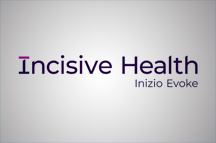A summer general election, something the bookies thought was almost unthinkable even last week, is on. Rishi has played almost the last card he has, managing to shock Westminster and the country by going to the polls six months earlier than he needed to.
So what has changed? The polls tell a clear story, although an election campaign can change that. Just ask Theresa May or Neil Kinnock. Many Conservatives are aghast at the prospect of an early election, fearing that 4 July will surely mark their independence from Parliament. The Opposition are giddy with excitement.
The calculus behind the decision might actually be about what the Prime Minister fears will not change: growth might remain anaemic, interest rates high, NHS performance sluggish and migration problematic. June and July might be as good as it gets, so the theory goes. Inflation has fallen to “normal levels”, the Rwanda scheme is on the statute books and has yet to be proven unworkable, NHS waiting lists have fallen a little and a great British summer of sport awaits. Could Euro 2024, Wimbledon and some sunshine deliver a feel good factor?
The early hours of the campaign have not suggested a shift in political fortunes is imminent. The scene of a drenched Prime Minister struggling to be heard over the strains of Things Can Only Get Better will not have been the image with which Sunak wished to start the campaign, but he now has the opportunity to make his case directly to the country. Any hope of his fortunes reviving will depend on whether the improvements on indicators such as inflation or NHS waiting lists seem real to voters or whether they appear as simply changes on a spreadsheet, interesting to commentators but meaningless to daily lives.
For their part, NHS leaders will hope for a quiet election. Tough decisions for this financial year have yet to really bite, progress on waiting lists may be small but it is there and the service is about as far away from winter as you can possibly get (although recent years have shown that crises are not as seasonal as they once were).
A curiosity of the campaign will be whether and in what ways each party seeks to stake out new policy on health and care. All will have been planning announcements in the run-up to party conferences and beyond. The next few weeks will see them brought forward, but they may be more modest than in previous campaigns. Labour will be cautious, placing economic credibility above all else. The Liberal Democrats know that health is a major concern in the ‘blue wall’ battleground where they hope to secure a breakthrough. The Conservatives will need to show they have a forward-looking offer.
For health campaigners, there is everything to play for. Each party will claim they were ready for this, but the truth is that a July election caught everyone by surprise. Campaign grids will not yet be fully populated and there will be an opportunity to set the parameters of the health debate, encouraging parties to focus on campaigners’ priority issues. The kind of announcements which don’t make it into a manifesto but are made nonetheless in every campaign are up for grabs.
That doesn’t mean that the next six weeks will be anything like illuminating for NHS watchers. Large parts of the campaign may indeed be dispiriting. But the decision to move the campaign forward will, in itself, have significant consequences for what comes next. There should now be time for a proper spending review in the autumn ahead of the 2025 fiscal cliff edge which is being faced by all public services. For the next government, winning the election might be the easy part.
What happens next?
Wash-up and ping pong: 16 bills are still in Parliament and need to be completed - or dropped - before Parliament is prorogued on 24 May.
All eyes are on the Tobacco and Vapes Bill which still has progress to make in the House of Commons before it reaches the Lords. The Government will look to accelerate progress on all non-controversial bills, but will that make the cut...
The pre-election period of sensitivity
The pre-election period of sensitivity (formerly known as purdah) has effectively started (although guidance is yet to emerge). NHS England, NICE, the MHRA and all other public bodies will avoid any activity that could be viewed as politically sensitive.
By Kieran Lucia, Senior Director












